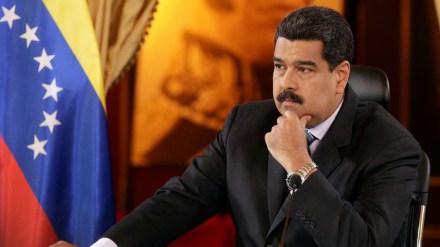US President Donald Trump has increased the bounty on Venezuelan President Nicolas Maduro to $50 million. Trump accused Maduro of being one of the biggest drug traffickers in the world. US officials have said that Maduro worked with drug cartels to send large amounts of cocaine, mixed with fentanyl, into the United States.
The US had first set the at $15 million in 2020. This was the time when Washington had first accused Maduro of drug trafficking. The bounty was later raised to $25 million in January 2025, when Maduro began his third term as the president of Venezuela. At the same time, the US had also announced new sanctions against top Venezuelan officials.
Who is Nicolas Maduro and why is Trump after him?
Nicolas Maduro Moros, born in 1962, is a Venezuelan politician and the leader of United Socialist Party. He has been serving as the President of Venezuela since 2013, making him the country’s 53rd president. He faced a lot of backlash and protests after last year’s disputed election but still managed to be in power.
During Trump’s first term, the US government accused Maduro and other top officials of crimes such as drug trafficking, corruption, and narco-terrorism. The US Justice Department had said at the time that Maduro had teamed up with the Colombian rebel group Farc to send large amounts of cocaine into the US.
Attorney General Pam Bondi shared a video on Thursday where she accused Maduro of working with groups like Tren de Aragua and the Sinaloa Cartel. Tren de Aragua is a Venezuelan gang that has bee labelled as a terrorist group and Sinaloa Cartel is a major drug network in Mexico.
She also said the US Drug Enforcement Administration (DEA) had seized 30 tons of cocaine linked to Maduro and his circle, and almost seven tons of seized cocaine was traced directly to him. Maduro has denied any involvement in drug trafficking.
‘Most ridiculous smokescreen ever’: Venezuelan Foreign Minister
Venezuelan Foreign Minister Yvan Gil took to Telegram and said that US’ move to increase the bounty is “pathetic” and “the most ridiculous smokescreen ever seen.” He also labeled it as a political stunt.
Gil said he wasn’t surprised by the move, considering “whom it comes from”. He accused Bondi of trying to shift attention away from news about the criticism over how the Jeffrey Epstein case was handled.
He added that while Venezuela was “debunking terrorist plots orchestrated” in America, Bondi was trying to distract the public and support Venezuela’s far-right, which had already lost.
He also said Venezuela’s pride could not be bought and strongly rejected what he described as a cheap attempt to spread political propaganda.
Bondi had said that US officials have taken control of more than $700 million worth of assets linked to Maduro, which includes two private planes.
Is Hugo Carvajal, former Venezuelan spy chief, helping US?
Venezuela’s former military intelligence chief Hugo Carvajal had pleaded guilty in June to drug trafficking and narco-terrorism charges. Once a powerful figure close to late Venenzuelan President Hugo Chávez, Carvajal was accused of helping run a drug-smuggling network involving top Venezuelan military officials.
According to a report by the BCC, US officials had said that Carvajal, known as “El Pollo” (The Chicken), worked with Colombia’s rebel group FARC, providing them with weapons and protecting their cocaine shipments through Venezuela. In return, he received millions of dollars. Authorities say the cocaine was used to target US cities like New York.
Carvajal was arrested in Spain after being on the run for years. His guilty plea came two years after he denied all charges, leading to speculation that he may be cooperating with US authorities to reduce his sentence by sharing sensitive information about President Nicolas Maduro’s government.
The US had charged Maduro with narco-terrorism in 2020 and imposed sanctions on him and his allies. Maduro claims these actions are part of US’ efforts to remove him and take over Venezuela’s oil, the BBC reported.
The report further added that Carvajal’s ties with Maduro broke down in 2017 after he supported anti-government protests. In 2019, he publicly backed opposition leader Juan Guaidó’s attempt to remove Maduro. When that failed, Carvajal fled to Spain, where he was eventually captured.
